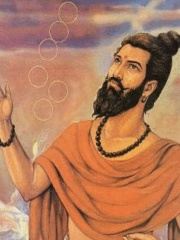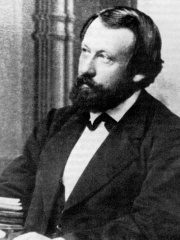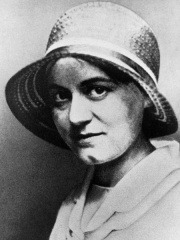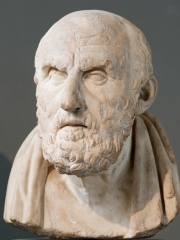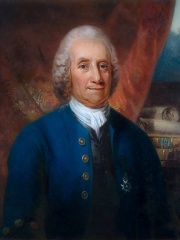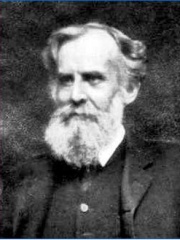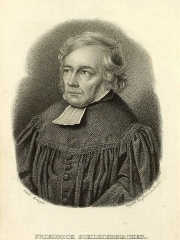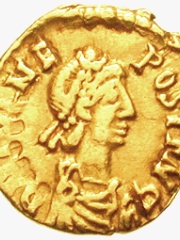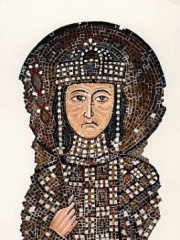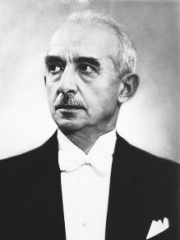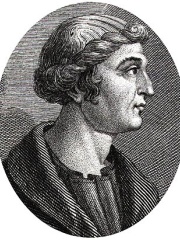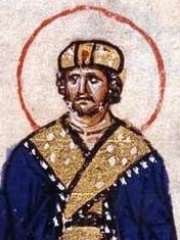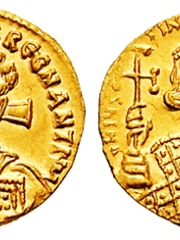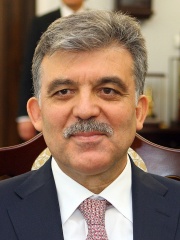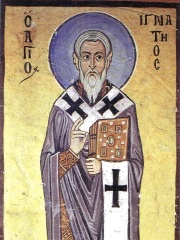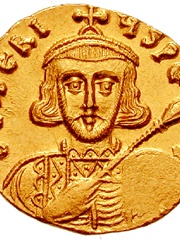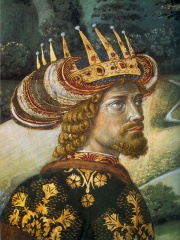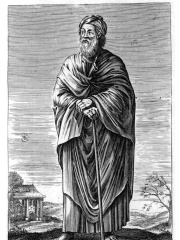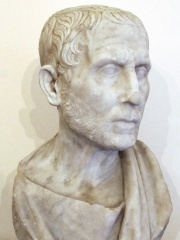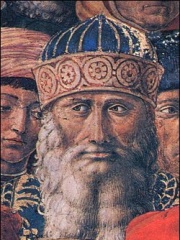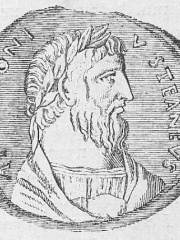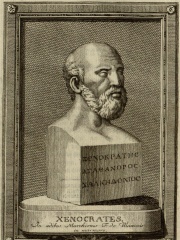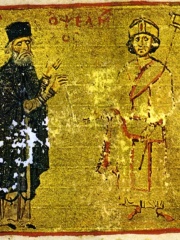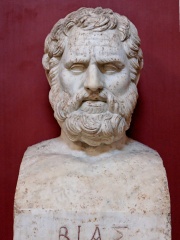Philosopher
Proclus
412 - 485
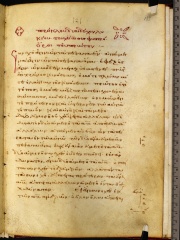
 Proclus
Proclus
Proclus Lycius (; 8 February 412 – 17 April 485), called Proclus the Successor (Ancient Greek: Πρόκλος ὁ Διάδοχος, Próklos ho Diádokhos), was a Greek Neoplatonist philosopher, one of the last major classical philosophers of late antiquity. Read more on Wikipedia
His biography is available in 48 different languages on Wikipedia (up from 46 in 2024). Proclus is the 149th most popular philosopher (up from 176th in 2024), the 134th most popular biography from Türkiye (up from 146th in 2019) and the 13th most popular Turkish Philosopher.
Proclus is most famous for his commentary on Plato's "Timaeus" and "Parmenides." He also wrote commentaries on Aristotle's "Physics" and "De Caelo" and the "Homeric Hymns."
Memorability Metrics
Page views of Proclus by language
Among Philosophers
Among philosophers, Proclus ranks 149 out of 1,267. Before him are Kanada, Wilhelm Dilthey, Edith Stein, Chrysippus, Alexander Gottlieb Baumgarten, and Isocrates. After him are Buddhaghosa, Emanuel Swedenborg, John Venn, Han Fei, Louis Althusser, and Friedrich Schleiermacher.
Most Popular Philosophers in Wikipedia
Go to all RankingsKanada
200 BC - 160 BC
HPI: 76.49
Rank: 143
Wilhelm Dilthey
1833 - 1911
HPI: 76.39
Rank: 144
Edith Stein
1891 - 1942
HPI: 76.33
Rank: 145
Chrysippus
281 BC - 208 BC
HPI: 76.28
Rank: 146
Alexander Gottlieb Baumgarten
1714 - 1762
HPI: 76.20
Rank: 147
Isocrates
436 BC - 338 BC
HPI: 76.16
Rank: 148
Proclus
412 - 485
HPI: 76.09
Rank: 149
Buddhaghosa
401 - 500
HPI: 76.08
Rank: 150
Emanuel Swedenborg
1688 - 1772
HPI: 76.06
Rank: 151
John Venn
1834 - 1923
HPI: 75.89
Rank: 152
Han Fei
280 BC - 232 BC
HPI: 75.88
Rank: 153
Louis Althusser
1918 - 1990
HPI: 75.82
Rank: 154
Friedrich Schleiermacher
1768 - 1834
HPI: 75.81
Rank: 155
Contemporaries
Among people born in 412, Proclus ranks 1. Among people deceased in 485, Proclus ranks 1.
Others Born in 412
Go to all RankingsOthers Deceased in 485
Go to all RankingsIn Türkiye
Among people born in Türkiye, Proclus ranks 134 out of 1,347. Before him are Chrysippus (-281), Julius Nepos (430), Anna Komnene (1083), İsmet İnönü (1884), Fethullah Gülen (1941), and Cassius Dio (155). After him are Michael III (840), Justinian II (668), Abdullah Gül (1950), Ignatius of Antioch (35), Tiberius III (700), and John VIII Palaiologos (1392).
Others born in Türkiye
Go to all RankingsChrysippus
PHILOSOPHER
281 BC - 208 BC
HPI: 76.28
Rank: 128
Julius Nepos
POLITICIAN
430 - 480
HPI: 76.23
Rank: 129
Anna Komnene
WRITER
1083 - 1153
HPI: 76.22
Rank: 130
İsmet İnönü
POLITICIAN
1884 - 1973
HPI: 76.20
Rank: 131
Fethullah Gülen
RELIGIOUS FIGURE
1941 - 2024
HPI: 76.15
Rank: 132
Cassius Dio
HISTORIAN
155 - 235
HPI: 76.14
Rank: 133
Proclus
PHILOSOPHER
412 - 485
HPI: 76.09
Rank: 134
Michael III
POLITICIAN
840 - 867
HPI: 76.01
Rank: 135
Justinian II
POLITICIAN
668 - 711
HPI: 75.96
Rank: 136
Abdullah Gül
POLITICIAN
1950 - Present
HPI: 75.95
Rank: 137
Ignatius of Antioch
RELIGIOUS FIGURE
35 - 108
HPI: 75.94
Rank: 138
Tiberius III
POLITICIAN
700 - 705
HPI: 75.92
Rank: 139
John VIII Palaiologos
POLITICIAN
1392 - 1448
HPI: 75.90
Rank: 140
Among Philosophers In Türkiye
Among philosophers born in Türkiye, Proclus ranks 13. Before him are Xenophanes (-570), Leucippus (-500), Gregory of Nazianzus (329), Ibn Taymiyyah (1263), Anaximenes of Miletus (-585), and Chrysippus (-281). After him are Posidonius (-135), Gemistus Pletho (1355), Apollonius of Tyana (15), Xenocrates (-396), Michael Psellos (1018), and Bias of Priene (-600).
Xenophanes
570 BC - 475 BC
HPI: 80.90
Rank: 7
Leucippus
500 BC - 500 BC
HPI: 80.59
Rank: 8
Gregory of Nazianzus
329 - 389
HPI: 80.37
Rank: 9
Ibn Taymiyyah
1263 - 1328
HPI: 77.67
Rank: 10
Anaximenes of Miletus
585 BC - 525 BC
HPI: 76.96
Rank: 11
Chrysippus
281 BC - 208 BC
HPI: 76.28
Rank: 12
Proclus
412 - 485
HPI: 76.09
Rank: 13
Posidonius
135 BC - 51 BC
HPI: 75.13
Rank: 14
Gemistus Pletho
1355 - 1452
HPI: 74.66
Rank: 15
Apollonius of Tyana
15 - 100
HPI: 74.50
Rank: 16
Xenocrates
396 BC - 314 BC
HPI: 73.16
Rank: 17
Michael Psellos
1018 - 1078
HPI: 72.64
Rank: 18
Bias of Priene
600 BC - 530 BC
HPI: 72.32
Rank: 19
